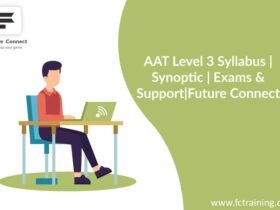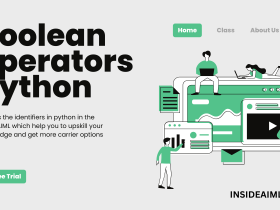The education industry faces numerous issues today, and considerable improvements in the sector are required to contribute to the advancement, as well as the growth and progress of the Education System. This article highlights the key elements that must be address to develop an effective improvement approach.
We’ve all talked about the different challenges that the education sector faces in today’s globalized world. Educational institutions and industry participants may employ a variety of approaches to solve these concerns. They can form educational collaborations, produce individualized development and education, implement new technologies, successfully use information systems to cut costs, offer personalized or specialized training, and expand open or low-cost educational opportunities. Now we will examine a few of the strategies in more detail:
-
Greater Accountability –
Institutions, instructors, and managers are the ones who give pupils instructions, curriculum, and demonstrations, paving the road for results. There must be an accountability framework in place that rewards institutions that achieve exceptional results. In a nutshell, establishing accountability in the public or private schooling is extremely difficult. Failure of pupils is not the fault of a single policymaker or provider; rather, it is the fault of a complex network of policymakers and providers.
-
Participate in Project-Based Learning with your students.
Learners are beyond the book to research complex themes based on real-world challenges such as the quality of water in their towns or the heritage of their town, examining data from several sources, including the online and professional interviews Project-based learning is much less demanding than traditional book-based instruction, in which students recollect information from a single source. Alternatively, students use authentic papers and data to better understand ideas taught in traditional courses. however , Students can even get the best assignment writing service uk online.
-
Integrated Research
According to James Burke’s book Connections, studies should allow students to reach beyond core subjects and examine their relationships. History, literature, and artwork can all be studied in conjunction. Therefore , literacy abilities are stretched beyond the conventional concentration on numbers and letters to have included graphics, color, music, and motion, integrative academics enable subjects to be examined by utilizing multiple forms of knowledge and expression.
-
Distribute Collaborative Learning
Students learn how to collaborate, manage emotions, and resolve problems in groups while working in project teams under the supervision of qualified teachers. Each team member is accountable for both knowing the subject matter and assisting teammates in their learning. Cooperative learning helps students build social and emotional development, which will help them succeed as workers, relatives, and communities.
-
Extend Comprehensive Evaluation
The evaluation must go beyond standardized tests to provide a comprehensive picture of a student’s strengths & shortcomings throughout time. Teachers, parents, and students may keep a close eye on academic development and use the evaluation to pinpoint problem areas. Students should be able to learn from the experience, repeat the test, and increase their results on tests.
-
Schools Must Get On Board With Technology
Teaching plans, exercises, and presentations are now included in online curricula for classroom usage and review. You, as a student can share academic interactions and work more effectively and imaginatively with the help of online connections and also pay someone to do your assignment.
Teachers can maintain up-to-date records and evaluations using software tools, as well as connect with students and parents .
-
Resource reorganization
Time, money, and facility resources must all be reform well. The school day should include block scheduling of sessions two hours or longer to enable more in-depth research projects beyond the 45-minute time. Summer vacation should not be used to close schools; instead, it should be used for student participation, training of teachers, and communal use. Elementary school teachers use the looping method to stay with a group for two or more years, building their relationships with pupils. However, More money should be channelize to the classrooms instead of the management in school districts.
-
Involvement of Parents .
Students learn better when their parents get involve in their academics. Parents and family members are indeed a child’s first teachers, and they can establish values that will help them succeed in school (Edutopia, 2005). Schools should form close partnerships with parents and encourage their active involvement in the classroom. However, Parents should be informed about the school’s academic objectives, the necessity of having unrealistic standards for each individual, and strategies to help with housework and classroom activities.
-
Partners from the community .
Students and instructors benefit from collaborations with a variety of community groups, including industry, higher ed, technologies, and experiences. Via school-to-career courses and internships, these organizations introduce students and instructors to the job market. In schools, specialists should be hire as instructors and mentors for students.
Final Thoughts!
for difficulty of adjusting to the economy’s shifting job needs, employers must provide tailored training. Some organizations are capitalizing on this burgeoning industry by developing customized training that is tailored to a company’s specific needs. Therefore , Instruction conferences, seminars, home programs of study, and the publication of good publications on current themes can all be used to provide personalized and specialized training.








Leave a Reply